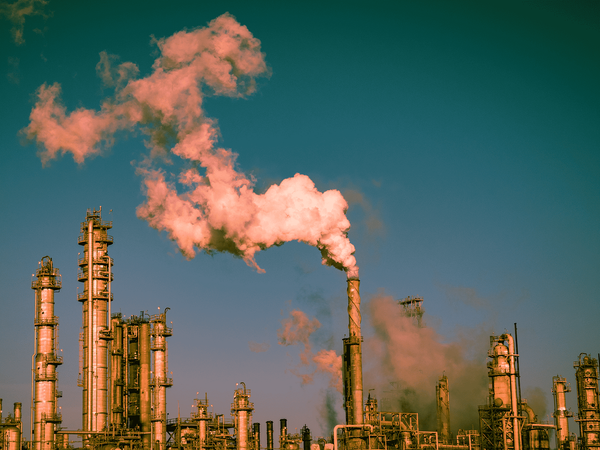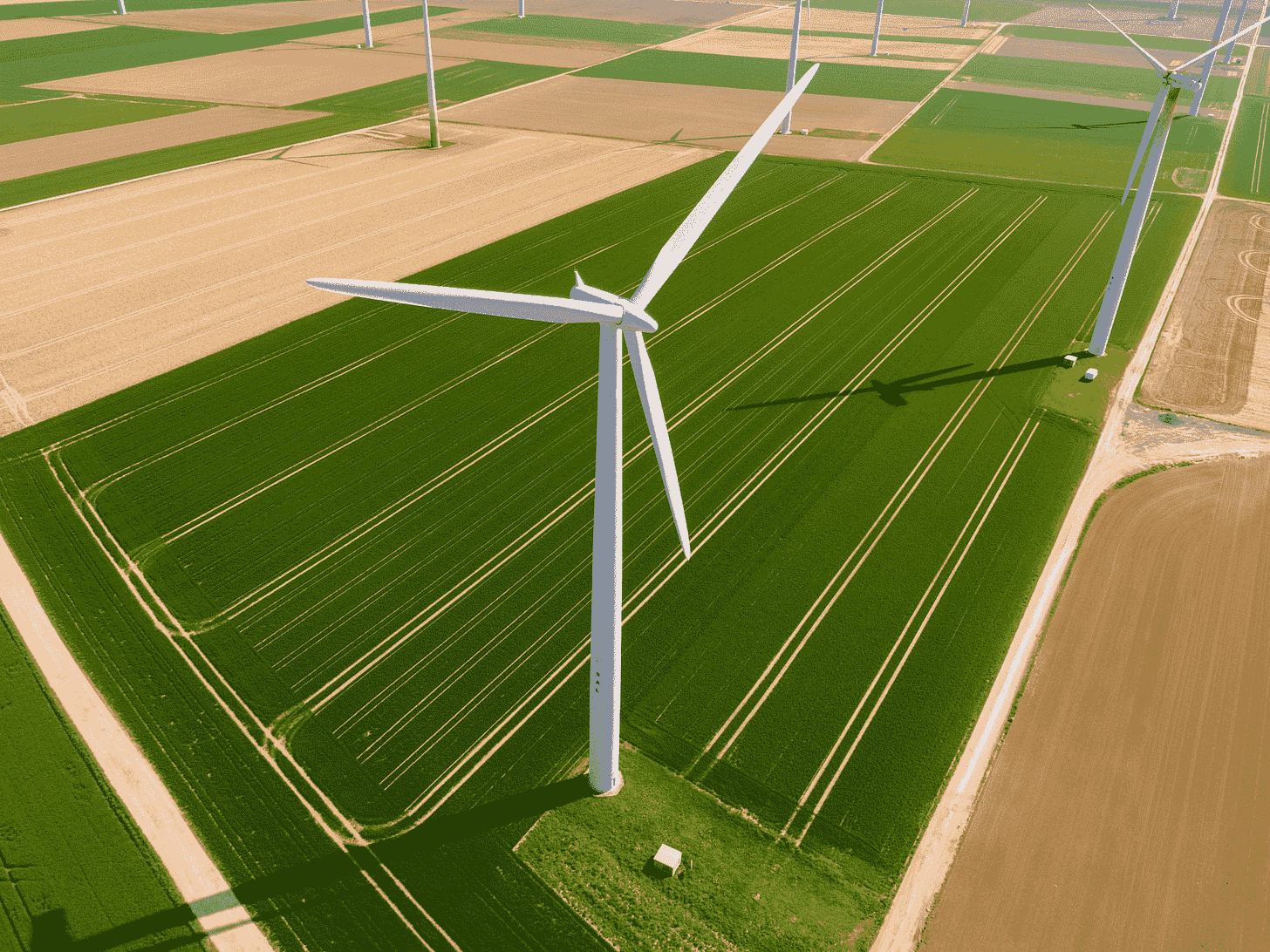When will fossil fuels run out?

A study conducted in 2021 by researchers from University College London claimed that it is important to leave approximately 58% of oil, 56% of fossil methane gas and 89% of coal untouched in 2050 to stay within a 1.5°C temperature increase limit.
Fossil fuels, such as coal, oil, and gas have formed from the remains of plants and animals that lived millions of years ago.
These fuels comprise carbon and hydrogen that can be combusted to generate energy. However, using them as an energy source comes with the cost of using finite and non-renewable resources.
Electricity consumption worldwide
Fossil fuels are a primary energy source for various aspects of modern civilization, from transportation to industrial sectors.
In the last two centuries, global fossil fuel consumption has increased by a factor of 1,300. Figure 1 demonstrates that in 2022, over 60% of electricity generation worldwide came from fossil fuels of which coal took a share of approximately 35.8%, natural gas 22.2% and oil roughly 3%.
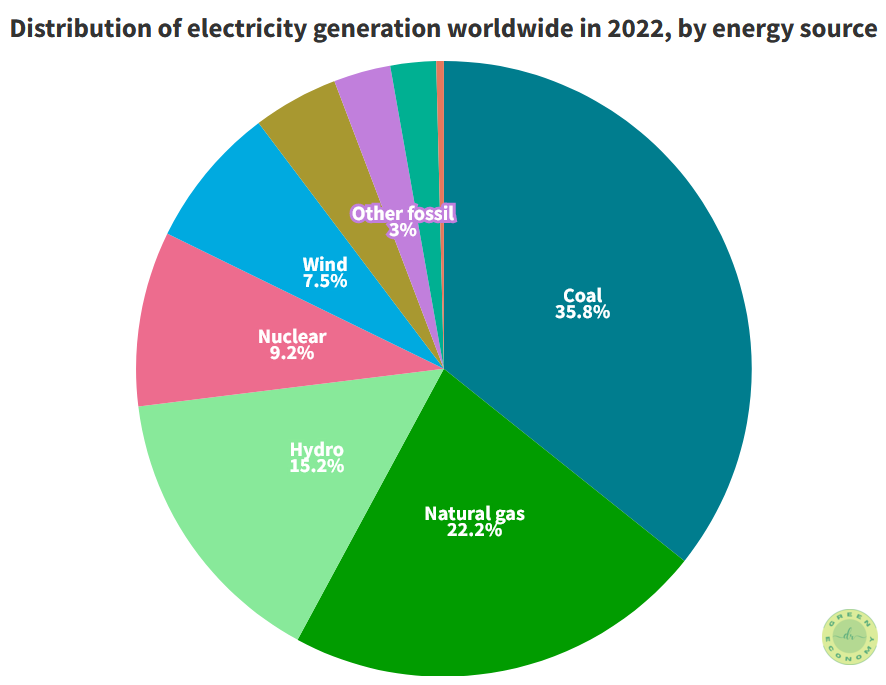
The global energy demand will increase by one-third by 2040, primarily fueled by the escalating consumption in the transportation sectors in Asia, mostly in India and China.
Given our heavy reliance on fossil fuels, these energy sources will deplete, most likely within this century.
When will fossil fuels run out?
The lifespan of fuels relies on two factors: (i) rate of utilization, influenced by the efficiency of consumption equipment, and (ii) reserves. One approach to estimating lifespan involves calculating the R/P ratios (ratio of reserves to current production rates).
Various sources provide slightly different estimates, but there is a common agreement that we still have several decades before these resources deplete fully despite high consumption. Figure 2 looks at the most recent publicly available data within the scope of my knowledge.

BP's 2021 report estimates coal reserves to last the next 139 years. However, this estimation is subject to variations, based on demand and drilling activities.
The Global Gas Report 2020 indicates that natural gas could last about 50 years. Based on a report released by BP in 2020, we currently have approximately 50 years' worth of oil reserves.
Some discrepancies may arise due to the occasional discovery of new deposits and the introduction of advanced technologies that bring out previously untapped oil or gas fields.
While some argue that the world may never run out of its reserves of fossil fuels, the extraction process becomes progressively challenging and costly with every million tons extracted.
Read: Sustainability jobs: 42 million renewable energy jobs by 2050
Ideal case scenario when being under 1.5°C
The University College London team evaluated the reserves of fossil fuels that must remain untapped to achieve a 50% likelihood of staying within the 1.5°C, based on 2018 carbon budget values.
Their analysis showed that global oil and gas production should decline by 3% annually until 2050 to achieve this objective. Increasing the probability of achieving greater than 50% to limit warming to 1.5°C demands a larger amount of carbon remain unextracted.
The team carried out the analysis for both on a regional and global scale for 2050 and 2100 and the result for coal, methane gas and oil are exhibited in Figure 3-5.
Approximately 89% of coal, 56% of fossil methane gas, and 58% of oil reserves would need to remain unextracted to align with the global 1.5°C target in 2050. That is equivalent to 826 billion tonnes (Gt), 87 trillion m3 (Tcm) and 740 billion barrels (Gb) , respectively.
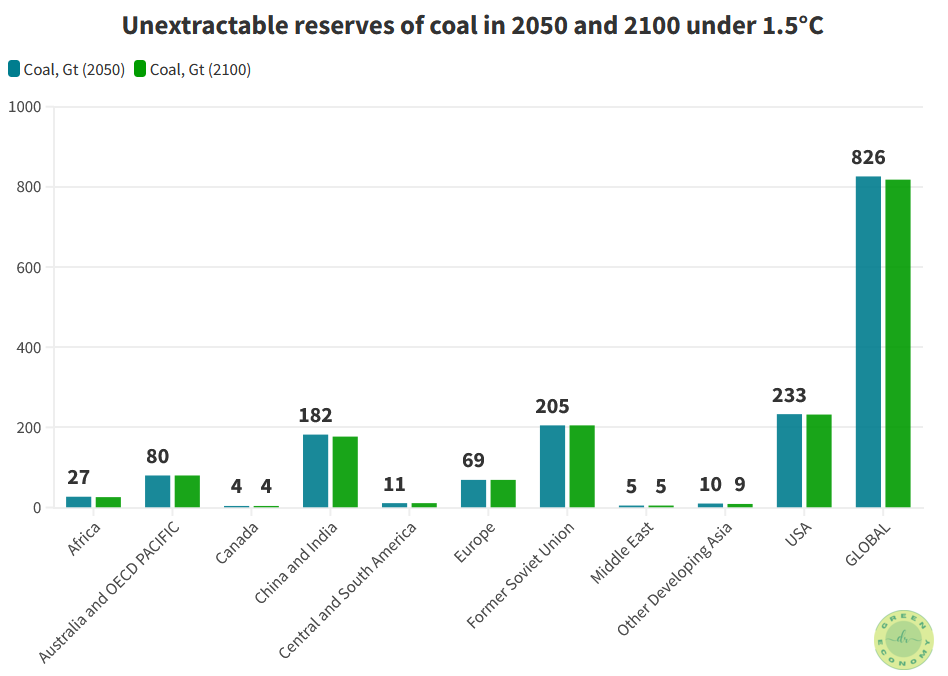
In regional, the largest reserve holders for coal are the USA (233 Gt in 2050 and 232 Gt in 2100), former soviet union (205 Gt in 2050 and 2100) and China and India (182 Gt in 2050 and 177 Gt in 2100).
The Middle East and former Soviet states top the list for fossil methane gas and are expected to have the strongest influence on the global picture.
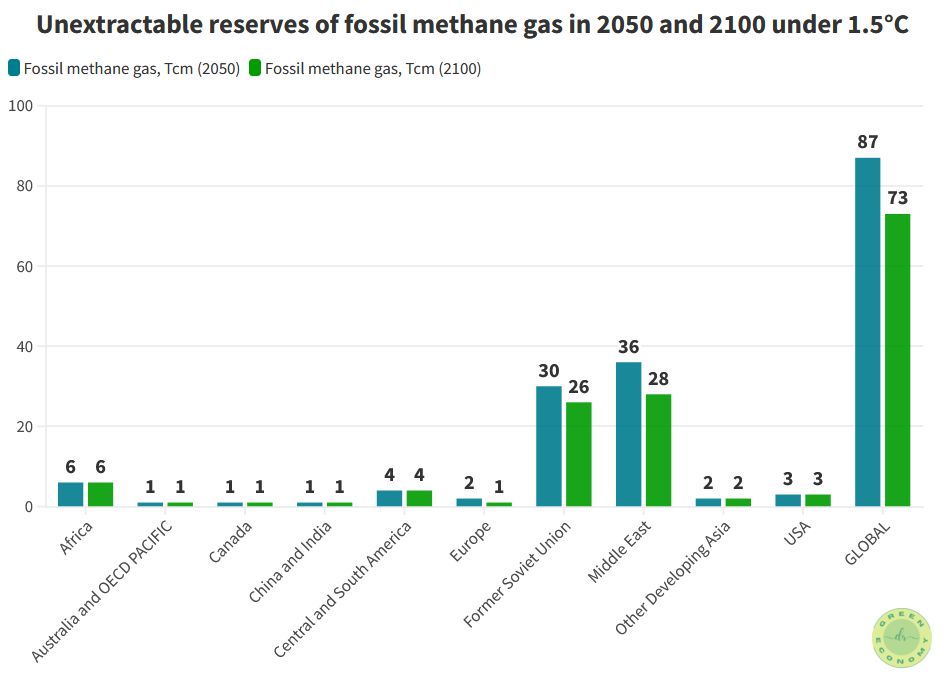
For oil, Middle East has much higher unextractable estimates than other regions in both 2050 and 2100. The central and south America also showed good estimation of 98 Gb and 84 Gb, respectively. Africa also showed higher reserves of oil than coal and methane gas.
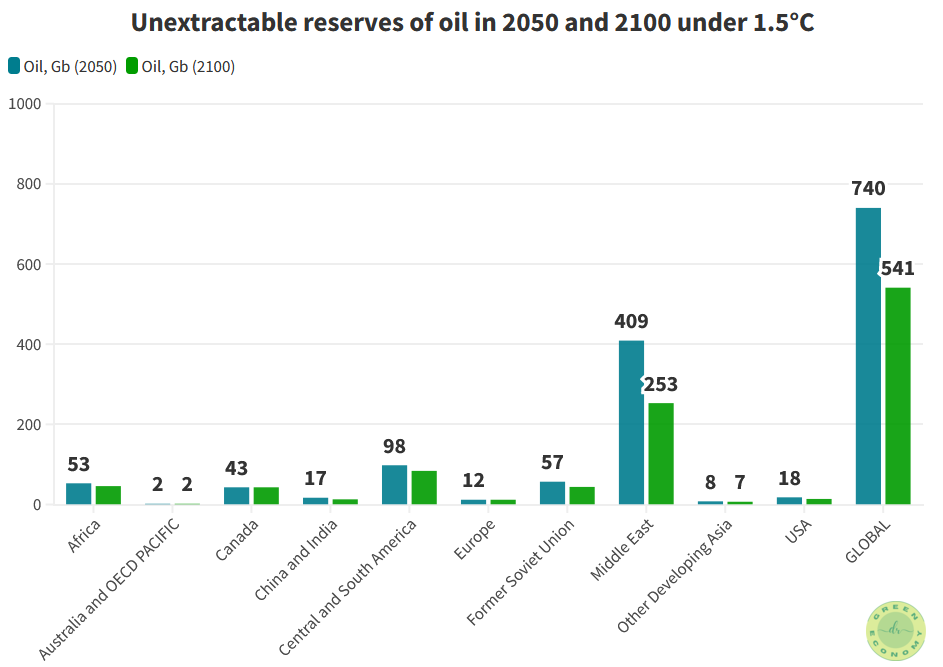
If the consumption of fossil fuels persists beyond 2050, the estimated unextractable reserves decline by 2100. For oil, the global estimate decreases to 42% by 2100, indicating a reduction. The decline for fossil methane gas is relatively smaller, decreasing from 56% to 47%.
The uncertainty surrounding the decline of fossil fuels in the future is still undetermined. Variables like the speed of clean technology implementation and choices regarding the decommissioning of fossil fuel infrastructure play a significant role.
Providing a definitive answer to ‘when will fossil fuels run out?’ is challenging, as the availability and consumption of fossil fuel reserves constantly fluctuate.
While estimates for fossil fuel reserves may differ depending on the source, there is a consensus that we still have several decades before these resources are depleted, even with our current high energy consumption levels.
Presently, there are more accessible fossil fuel reserves than ever before, despite the significant environmental consequences associated with their record-high consumption. The challenge would be to use less. It is crucial to explore strategies and solutions for a future that relies less on fossil fuels.
Read: Disadvantages of renewable energy
This requires increasing investments in alternative energy sources like solar, wind, and geothermal power. Reducing emissions from vehicles, promoting public transportation, and encouraging electric car adoption are essential steps.
Summary
- Global consumption of fossil fuels has drastically increased in the past two centuries.
- Over 60% of electricity generation worldwide relied on them in 2022
- Coal reserves are projected to last about 139 years, while natural gas and oil reserves are expected to last approximately 50 years each
- The extraction of fossil fuels becomes increasingly challenging and expensive as reserves are depleted
- To stay within the 1.5°C warming limit, a significant portion of fossil fuel reserves would need to remain untapped
